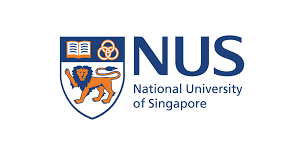In response to a significant increase in visitor traffic, the National University of Singapore (NUS) has launched a pilot initiative paying 40 student
In response to a significant increase in visitor traffic, the National University of Singapore (NUS) has launched a pilot initiative paying 40 students to conduct guided tours and educate tourists about visitor guidelines. This comes after a wave of complaints from students regarding the overcrowding on campus grounds, particularly in shuttle buses and canteens, following the start of the new academic year.
Complaints regarding the influx of visitors emerged on Reddit in August, prompting the university to take action. Listings for paid guided tours around popular areas such as University Town (UTown) and the NUS Central Library have surfaced on the Chinese social media platform Xiaohongshu. Some tours charge around $50 per person, while group rates can go up to $310 for six visitors.
In an internal email sent to students on August 14 and obtained by AsiaOne, NUS announced that it is “closely monitoring the influx of tourists during the summer travel season of Asian countries” and implementing measures to manage visitor traffic effectively, ensuring minimal disruptions to lessons and campus activities. The pop-up visitor center initiative, running from August 5 to September 30, involves 40 trained undergraduate student ambassadors who are compensated under the university’s Student Work Scheme. They are scheduled to work during weekdays at the Stephen Riady Centre.
These ambassadors will lead tour groups around UTown via a “curated” route designed to manage movement, reduce congestion, and minimize disruptions. Tours can be booked by travel guides and agencies licensed by the Singapore Tourism Board. Over the past two weeks, more than 25 tour groups, totaling around 500 tourists, have been guided around the campus as part of this initiative.
In addition to leading tours, the ambassadors are tasked with engaging smaller groups of tourists and larger groups led by independent guides to educate them on visitor guidelines and etiquette.
Additional Measures Implemented
NUS has also introduced several other measures to alleviate the impact of tourist traffic. These include increasing the frequency of internal shuttle buses and installing signage reminding visitors to prioritize staff and students during peak hours. Staff will be deployed at UTown bus stops and food courts to ensure that priority is granted to staff and students. Furthermore, ground surveillance and security will be enhanced to prevent trespassing into restricted areas.
NUS emphasized to students and staff in the email that they are prohibited from granting visitors card access to restricted areas, such as residence halls and classrooms. The university plans to evaluate these measures in the coming weeks, assuring the community that they will consider additional strategies to effectively manage tourist traffic as necessary. AsiaOne has reached out to NUS for further information.



COMMENTS